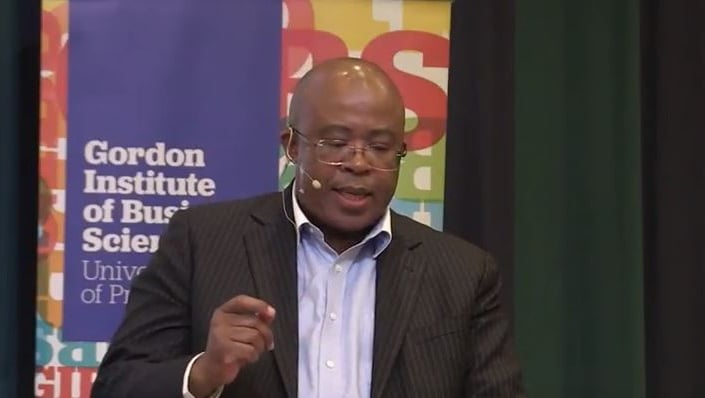
Can a company’s corporate culture make or break it?
Sasol’s joint president and chief executive, Bongani Nqwababa believes so, and he is determined to create an aspirational culture, one that is rooted in trust, respect and engagement.
Nqwababa believes accelerating the transformation of the group’s corporate culture through leadership can provide significant competitive advantage and help the company retain relevance in an increasingly digitised environment.
“Leaders play a pivotal role in enabling culture and must lead by example. A combination of culture, strategy and leadership drive a high performance culture and create superior value for all stakeholders,” he told a Gordon Institute of Business Science forum recently.
“Irrespective of the organisation, culture has a significant bearing on the success of the company.”
Cultural change and values
Feedback from a broad 2016 employee engagement survey found that Sasol’s corporate culture “tended to lean towards command and control. We need to change this in order to get more energy and positivity. Some generations would tolerate the existing culture, but millennials won’t. We must evolve in order to remain relevant,” Nqwababa explained.
As a result, the company has embarked on a corporate culture transformation project, which will take three to four years to achieve. This aspirational culture underpinned by values is essential, Nqwababa said, as it is at the core of Sasol’s “resilient and high performance culture, which is direct and action-orientated.”
“Employees determine whether a company is merely good or truly great. People are our most sustainable competitive advantage,” he added.
Leadership shift
One of the most significant barriers to cultural change is leadership style, Nqwababa explained. “How we are perceived as leaders contributes to the values we create.”
A number of key shifts in leadership style are necessary to enable the move to an aspirational culture, one that is more rooted in trust, respect and engagement.
“If you can’t hear your people, you can’t improve,” he said.
“The changes to our culture that we need to make are significant and won’t happen overnight. Our leaders need to live our aspirational values and lead by example.”
Authentic leadership means “always doing the right thing, in the darkness when no one is watching, and in the light. We have had to move to a culture that is open and collaborative. An environment which creates fear discourages open collaboration and innovation.”
Through its Lead Sasol Programme, the organisation was looking at focusing on developing multiplier leaders who could create an atmosphere where employees can bring their best ideas to work everyday Nqwababa said. This would result in high performance, exceptional business results, employee commitment, innovation and trust.
Nqwababa said his personal leadership style has also undergone a transformation: “I realised that you have to slow down and incorporate the views of others in order to be able to co-create. You may think it is slowing you down initially, but you will move faster once you have people on board, and as a result your content will be richer.”
Transformation to a digital organisation
Alongside Sasol’s corporate cultural change is a simultaneous shift to digitisation which comes from the realisation that the company must evolve in order to remain competitive. As a large multinational operating in diverse sectors, the company has to adopt new ways of doing business in order to become disruptive from within.
To this end, Sasol intends to, “embrace digital at scale to enhance competitiveness”, Nqwababa said. The oil and gas industry had been a laggard when it comes to adopting digital technology, he added.
“We have a strong, can-do, engineering culture, which often means we want to re-engineer things if they go wrong. However, we have to adjust this to an innovative mindset where you fail fast and move on.”
The company has appointed a digital officer and on July 1, will launch a full digital office, enabling all functions to execute their digital aspirations.
Continued global expansion
Sasol, which currently operates in 33 countries, aims to be a leading, integrated global company with firm roots in South Africa. “We are proud of our history. The majority of South African companies which listed abroad have been an overwhelming failure because they tried to become what they are not.”
Sasol would consider expansion into Asia, specifically China and India, in the near term as over 40% of the demand for chemicals in the next 10 years would come from that region. “We need to be there,” Nqwababa said.
Asked whether the organisation had become increasingly “siloed” as it had expanded into different geographical locations, he said the global structure created a dynamic tension to be resolved and added to the group’s diversity of opinions and ideas.
As the second largest emitter of greenhouse gases in South Africa, Sasol’s strategy of diversification into chemicals and away from energy would help reduce its emissions.
“We are investing more time into plant design to address the emissions issues we face. It is a long journey, but we are on our way. We are not denialists,” he argued.
When asked how his current position as joint chief executive of the company differed from his previous role as Sasol chief financial officer, Nqwababa explained that as an accountant he had an enterprise-wide view and was focused on measuring performance.
“However, the disadvantage is that you can be too focused on outcomes and not people, when it is people that will achieve the outcomes.”
• City Press is a media partner for the Gordon Institute of Business Science forums.




 Publications
Publications
 Partners
Partners








